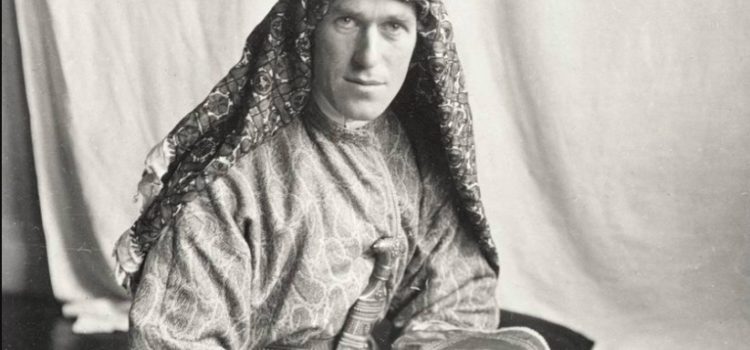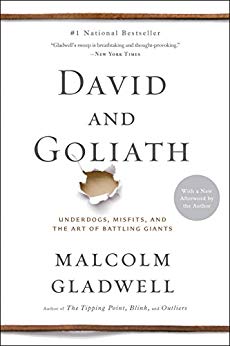

This article is an excerpt from the Shortform summary of "David and Goliath" by Malcolm Gladwell. Shortform has the world's best summaries of books you should be reading.
Like this article? Sign up for a free trial here .
Who was Lawrence of Arabia? How did he manage to defeat the powerful Turks with his untrained band of nomads?
Lawrence of Arabia (T.E. Lawrence) was a British officer and archaeologist who led various military activities in Arabia during the First World War.
Learn what Lawrence of Arabia can teach us about winning as an underdog.
Lawrence of Arabia and the Advantages of Lacking Skill
If you feel like the underdog, it may be because you lack skills that most people consider necessary to win in your field. You likely think of your shortcomings as obvious disadvantages. But, contrary to common sense, what if you could use your inadequacies to your advantage?
Lawrence of Arabia demonstrated the various advantages of “disadvantages.” One advantage was having no skill.
If you’re really terrible at a game, you can’t follow conventional wisdom and win—you just don’t have the skills. Being unskilled (but still in the game) forces you to come up with new approaches to winning. Your skilled opponents (who aren’t as desperate as you are) have no reason to come up with novel strategies because the conventional ones work well for them. Consequently, your opponents are not prepared for your new approach. Taking them by surprise gives you an edge.
The stories of Lawrence of Arabia illustrate situations in which a group’s lack of skill obliged them to implement strategies that were far more effective than the traditional ones.
The Underdog Tactics of Lawrence of Arabia
At the end of the First World War, Lawrence of Arabia led the Arabs 6,000 miles through the desert, into battle against the highly trained Turkish army occupying Arabia. Lawrence commanded a small, untrained band of Arab nomads, many of whom had never held a gun. The troops only numbered a few hundred, but they beat the Turks’ army easily, only losing two men.
Why Did Lawrence of Arabia’s Underdog Tactics Work?
- They were unexpected: The Turks were prepared to defend themselves against an attack from British ships at the Gulf of Aqaba. They left themselves vulnerable to an attack from the desert, never imagining that any troop would be crazy enough to cross it, especially in the summer.
- They took advantage of the opponent’s weaknesses: Like Goliath with his burdensome weapons and armor, the Turks’ extensive material resources weighed them down and rendered them immobile, trapped between the sea and the desert. By approaching from the desert side, Lawrence of Arabia’s army hemmed the Turks in, leaving them little room for escape.
- They didn’t allow their opponents to capitalize on their strengths: The Turks had modern weapons and material resources, but the Arabs’ surprise attack didn’t give the Turks time to utilize their resources to their full potential.
- They used their “disadvantages” to their advantage: The Arab soldiers carried only a rifle and a hundred rounds of ammunition. They brought little water or food. But, like David, they used their lack of weaponry and supplies to their advantage. Traveling light allowed them to cover upwards of 100 miles a day.
- They were audacious: Traveling 600 miles through the desert in the summer is bold. Few would have had the audacity, which is part of what made their appearance at Aqaba so surprising.
If Underdog Tactics Are So Successful, Why Isn’t Everyone Using Them?
Many have fought battles since the Arabs beat the Turks in Aqaba. Lawrence of Arabia’s unconventional tactics aren’t unknown. But in general, underdogs rarely learn from the past and use these unconventional strategies. Why not?
Reason 1: Underdog tactics are hard
Walking 100 miles a day through the desert in the summer is brutal. Few but the desperate are willing to work this hard.
Reason 2: People get angry when you don’t play by their rules.
Thus, these tactics are best employed by those who don’t care if they upset some people.
If you care what others think of you, you’re less likely to use underdog tactics. (And it’s human nature to care what others think of you, making this difficult.)
- For example, Lawrence of Arabia’s British compatriots scoffed at his Bedouin dress and “untrained rabble,” but he didn’t care. He was an archaeologist by trade and wasn’t invested in the good opinion of the military establishment.
Lawrence of Arabia shows us that disadvantages may actually be advantages in disguise, as long as you make use of them and ignore the naysayers.
———End of Preview———

Like what you just read? Read the rest of the world's best summary of "David and Goliath" at Shortform . Learn the book's critical concepts in 20 minutes or less .
Here's what you'll find in our full David and Goliath summary :
- Why being the underdog can actually be an advantage
- Why you shouldn't be afraid of powerful giants
- Strategies to get an edge when you're overpowered






